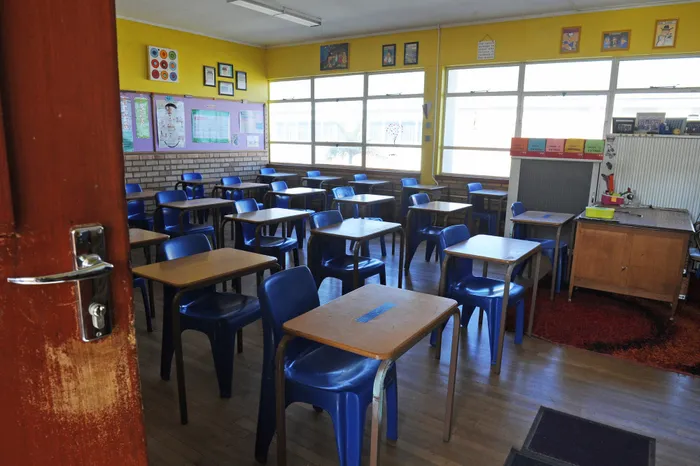Back to school and matric results: prioritising mental health for young people

School desks and chairs seen in a classroom Essential strategies and support systems are needed to help young people facing mental health challenges while awaiting matric results or preparing to return to school. File Picture: Independent Newspapers Archives
The transition from matriculation into adulthood or going back to school can significantly impact the mental health of teenagers.
According to Life Healthcare, 9.5% of teen deaths in South Africa are due to suicide, and a third of all hospital admissions for suicide attempts involve teenagers. Clinical psychologist Ruvé Esterhuysen from Life Poortview explains that modern life is inherently stressful and urges parents and caregivers to be vigilant.
"Modern life is a stressful experience, and we all need help and support. There must be no stigma around seeking that help. People who reach out to friends, family, and professionals are showing responsible behaviour,” said Esterhuysen.
She warns of signs to watch for, including panic attacks, unhealthy substance use, and para-suicide, defined as a cry for help without the intention to die.
“75% of all people who commit suicides give some warning of their intentions to a friend or family member,” she adds.
The importance of open communication is echoed by Murray Hewlett, CEO of Affinity Health, who highlights the need for a team approach in managing back-to-school anxiety.
“Many children and teens have faced disruptions in learning, new social pressures, and increased digital influences that can heighten stress,” he explains.
Practical strategies like establishing a routine, promoting positive self-talk, and encouraging social connections are recommended. “A steady routine provides children with a sense of stability, easing the challenges of new transitions,” Hewlett says.
Open communication is also crucial. “Encourage children to express their worries without judgment,” he advises.
He also noted that relaxation techniques, such as deep breathing or mindfulness, are additional tools parents can share with their children. “Practising these techniques together reinforces the importance of self-care,” he adds.
Esterhuysen emphasises that parents must be proactive about mental health and normalise seeking professional help.
"We all need hobbies and extra-mural activities. Loneliness affects mental health especially for teenagers," she says.
“Let the teens in your life know that after matric, life carries on, with all its pain and joy. We all need help from time to time, and there’s nothing wrong with that,” says Esterhuysen.
Related Topics: